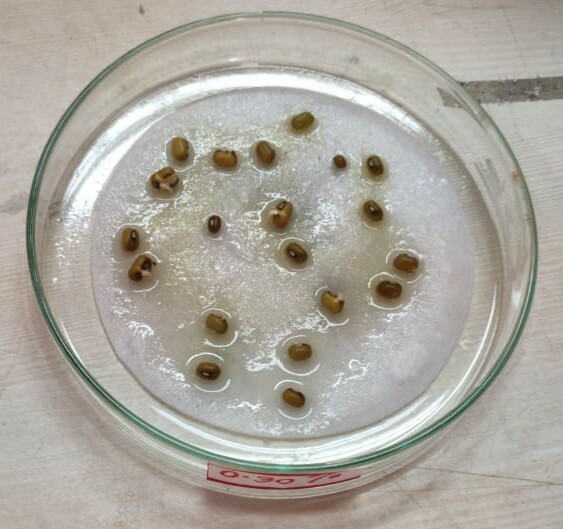Combined Progestin-Estrogenic Contraceptive Pills May Promote Growth in Crop-Plants
(1) The Heritage School, Kolkata, India
https://doi.org/10.59720/19-108
Recently, there has been an increase in abundance of chemicals in the environment, especially from therapeutic usages. The effects of these deposited chemicals on the environment and human functions such as the endocrine system are of growing concern. A comparative study was conducted of the combined-effects of ethinyl estradiol and the progestin norgestrel commonly present in contraceptive tablets on the growth of flowering plants. The dicotyledon Vigna radiata (mung bean) and monocotyledon Triticum aestivum (winter wheat) were treated with progestin-estrogenic contraceptive tablets at 0.150%, 0.300%, 0.450%, 0.600% w/v using distilled water as a control over a period of 6 days. Morphological growth (percentage germination, embryonic and adventitious tissue proliferation, root length, and shoot length) was measured and chlorophyll concentrations were calculated using Arnon’s equation for each group. Morphological growth was highest in V. radiata treated with the 0.150% solution and in T. aestivum treated with the 0.450% solution. Maximal inhibition of morphological growth was observed at 0.600% in V. radiata. Progestin-estrogenic contraceptive tablets enhanced morphological growth of T. aestivum at all experimental groups compared to the control. Calculated chlorophyll concentrations were higher than the control group at all experimental conditions for both the crop-plants. Maximum chlorophyll concentrations were also found in V. radiata and T. aestivum treated with 0.150% and 0.450% w/v solutions. While the impact of these chemicals on human health remains unclear, removing these chemicals from the environment is currently not cost-efficient and may either augment or diminish crop yields.
This article has been tagged with: